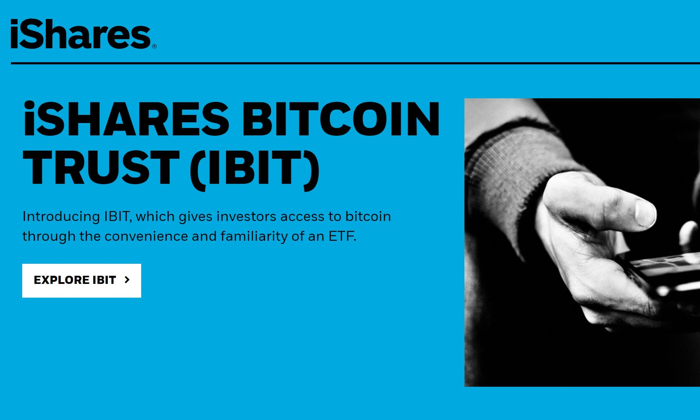Pakistan Bitcoin mining is set to become a significant player in the global cryptocurrency arena as the government announces plans to allocate a substantial 2,000 megawatts of electricity specifically for this purpose. With the backing of the Pakistan Crypto Council (PCC), this initiative focuses on tapping into underutilized coal-powered plants to power Bitcoin mining operations and AI data centers. As interest in cryptocurrency in Pakistan surges, this move not only aims to attract foreign investment but also to establish a robust regulatory framework, especially in light of ongoing discussions about Bitcoin regulations Pakistan. Experts believe that if efficiently harnessed, this initiative could position Pakistan as a leading hub for Bitcoin mining, generating thousands of BTC yearly. This shift symbolizes a deeper embrace of digital currencies that could transform the economic landscape and spur innovation across the nation.
The burgeoning interest in cryptocurrency in Pakistan highlights the transformational potential of digital assets within the country’s economy. By harnessing local energy resources for Bitcoin mining, Pakistan can significantly enhance its technological capabilities while positioning itself as a competitive player in the blockchain space. Initiatives from the Pakistan Crypto Council aim to create a conducive environment for both domestic and foreign investments, reflecting a broader trend toward legitimizing this asset class. As authorities work on Bitcoin regulations Pakistan, the possibilities for innovation extend beyond mere mining to include advanced AI data centers Pakistan, showcasing the intertwining futures of these technologies. Overall, this strategic move signals a noteworthy pivot towards embracing the future of finance and technology in the region.
Bitcoin Mining in Pakistan: An Emerging Opportunity
Pakistan is poised to make significant strides in the cryptocurrency sector by allocating 2,000 megawatts of electricity specifically for Bitcoin mining and artificial intelligence data centers. This strategic move, confirmed by the Pakistan Crypto Council (PCC), aims to repurpose underutilized coal-powered plants, currently operating at merely 15% capacity. This decision not only showcases Pakistan’s commitment to legalizing cryptocurrency but also reflects its ambition to attract foreign investment and enhance technological infrastructure within the country. As Bitcoin mining continues to evolve globally, Pakistan is positioning itself as a competitive player in this burgeoning industry.
The potential ramifications of this initiative are vast. If Pakistan can harness even half of the allocated power for Bitcoin mining effectively, it could yield around 17,000 BTC annually. This paves the way for competition with neighboring countries like India, which may be encouraged to adopt similar mining strategies. With a clear focus on renewable resources and energy optimization, Bitcoin mining in Pakistan could not only boost the economy but also create a roadmap for sustainable practices in the growing cryptocurrency sector.
Regulatory Framework for Cryptocurrency in Pakistan
As Pakistan ventures further into the realm of cryptocurrency, establishing a robust regulatory framework is imperative. The government has already taken commendable steps by appointing influential figures like Binance founder Changpeng Zhao to advise the Pakistan Crypto Council. This move aims to provide sound guidance as the country formulates regulations governing Bitcoin and other digital currencies. These regulatory efforts are essential for ensuring investor confidence and fostering a secure environment for crypto transactions, encouraging more individuals and businesses to engage in cryptocurrency in Pakistan.
Moreover, the collaboration with World Liberty Financial (WLFI), associated with DeFi initiatives, is a strategic alliance aimed at fostering blockchain adoption across various sectors. This comprehensive regulatory groundwork, once implemented, could position Pakistan as a favorable destination for cryptocurrency ventures, attracting not only domestic but also international players seeking to tap into the thriving crypto market.
The Role of AI Data Centers in Cryptocurrency Growth
The integration of AI data centers alongside Bitcoin mining initiatives marks a progressive step for Pakistan’s technological landscape. By leveraging the massive computational power required for both AI and cryptocurrency operations, the country can significantly enhance its digital infrastructure. This dual focus on AI and Bitcoin mining serves to optimize resource allocation, allowing for more efficient operations and energy consumption. Furthermore, establishing AI data centers can catalyze innovation within the technology sector, driving advancements that complement cryptocurrency development.
These AI data centers not only support mining operations but also create avenues for research and development in other fields, potentially leading to breakthroughs in machine learning, big data analytics, and smart technologies. As Pakistan continues to evolve in its approach to Bitcoin and cryptocurrencies, the symbiotic relationship between AI and digital currencies could redefine its position in the global tech arena.
Challenges and Risks of Bitcoin Mining in Pakistan
Despite the promising developments for Bitcoin mining in Pakistan, several challenges and risks must be addressed. One of the primary concerns revolves around Bitcoin regulations in Pakistan, as the government strikes a balance between embracing cryptocurrency and navigating the financial implications associated with it. The International Monetary Fund (IMF) has expressed apprehensions about the potential financial risks posed by Bitcoin mining, particularly regarding the government’s direct involvement. This reflects a broader concern where countries under IMF agreements must tread carefully to avoid complications with their economic stability.
Furthermore, the infrastructural challenges related to energy supply and management could impact the feasibility of large-scale Bitcoin mining in Pakistan. Ensuring that the allocated 2,000 MW is utilized effectively and sustainably is vital for the project’s success. Addressing these challenges will require comprehensive planning and investment in technology, alongside the establishment of clear regulations governing the cryptocurrency space.
Pakistan’s Competitive Edge in Regional Cryptocurrency Landscape
The decision to allocate significant electricity resources for Bitcoin mining puts Pakistan in a unique position within the regional cryptocurrency landscape. With neighboring countries like India also exploring Bitcoin mining possibilities, Pakistan’s proactive approach may provide it with a competitive edge. By rapidly establishing its presence in cryptocurrency and spearheading innovative projects, Pakistan could become a central hub for digital assets in South Asia. This would not only enhance its economic outlook but also attract global attention towards investment and technological collaborations.
Additionally, promoting cryptocurrencies and blockchain technology can yield long-term benefits for the nation. By establishing leading-edge regulatory frameworks and encouraging investment in infrastructure, Pakistan could harness the potential of being a leading player in the international crypto sphere. With the right strategies in place, Pakistan’s clear commitment to Bitcoin and the broader cryptocurrency ecosystem may catalyze a tech revolution, inviting more startups and innovation than ever before.
The Influence of Global Market Trends on Pakistan’s Bitcoin Strategy
As Pakistan embarks on its journey in the cryptocurrency world, global market trends play a critical role in shaping its Bitcoin strategy. By observing the successes and failures of other nations that have integrated cryptocurrency into their economies, Pakistan can tailor its approach to fit its unique circumstances. For instance, the experiences of countries adopting Bitcoin amidst IMF agreements provide valuable lessons on navigating regulatory challenges while maximizing economic opportunities.
Keeping an eye on global market trends also allows Pakistan to position itself advantageously when attracting investment in cryptocurrency and AI sectors. Engaging with international stakeholders and participating in global discussions about cryptocurrency regulations can guide Pakistan towards creating a sustainable and profitable mining framework. In this rapidly evolving digital landscape, adapting to global shifts will be paramount for the success of Pakistan’s Bitcoin initiatives.
The Future of Cryptocurrency and Bitcoin Mining in Pakistan
The future of cryptocurrency and Bitcoin mining in Pakistan is marked by optimism and potential growth. With the foundations of regulatory frameworks set to emerge, and the government actively supporting investment in digital assets, the landscape looks promising. As the country moves towards legitimizing cryptocurrency, public awareness and acceptance are also likely to grow. Educational initiatives and awareness campaigns could further empower the Pakistani populace to understand and engage with crypto trading and investing.
Additionally, the intersection of Bitcoin mining and AI technology presents vast opportunities for innovation and job creation, enhancing the local economy. Collaborations with international tech firms could pave the way for knowledge transfer and innovation in blockchain and AI sectors. As cryptocurrency continues to gain traction, Pakistan is on the brink of establishing itself as a viable destination for crypto enthusiasts and entrepreneurs alike.
Impact of International Developments on Bitcoin Mining Regulations
International developments influence Bitcoin mining regulations significantly, especially in a country like Pakistan that is in the early stages of establishing its crypto framework. Global regulatory trends, ranging from increased scrutiny by financial authorities to the adoption of more flexible policies in some regions, will affect how Pakistan shapes its own regulations. Collaboration with other countries that have successfully integrated cryptocurrency into their economies, such as El Salvador, can provide valuable lessons and models for effective regulation.
Furthermore, the pressures from organizations like the IMF can steer Pakistan’s regulatory approach as it aligns itself with global financial standards while promoting domestic Bitcoin mining initiatives. Ensuring that these regulations safeguard economic stability while fostering innovation will be a delicate balance for the Pakistani government. Monitoring international developments will be critical in navigating the complex landscape of cryptocurrency regulations.
The Role of the Pakistan Crypto Council in Facilitating Bitcoin Mining
The Pakistan Crypto Council (PCC) plays a pivotal role in facilitating the growth and development of Bitcoin mining in the country. As the overseeing body for this initiative, the PCC’s efforts to create a conducive regulatory environment are essential for attracting investments and fostering industry growth. By collaborating with various stakeholders, including technology firms and financial institutions, the PCC can drive initiatives that enhance the adoption of cryptocurrency in Pakistan.
Moreover, the PCC’s involvement in public education about Bitcoin mining and cryptocurrency’s potential is critical. Raising awareness about the benefits and risks associated with digital currencies can empower individuals to participate safely in this emerging market. Through strategic partnerships and advocacy, the Pakistan Crypto Council can ensure that the nation benefits from the vast opportunities presented by Bitcoin mining, ultimately contributing to economic growth and technological advancement.
Frequently Asked Questions
What is the current status of Bitcoin mining in Pakistan?
Bitcoin mining in Pakistan is gaining traction as the government plans to allocate 2,000 megawatts of electricity specifically for this purpose. This initiative aims to utilize underperforming coal-powered plants and supports the broader strategy to legalize cryptocurrency in Pakistan.
How much Bitcoin could Pakistan potentially mine annually?
With the new energy allocation, Pakistan could generate approximately 17,000 BTC per year if half of the 2,000 MW is used effectively for Bitcoin mining under optimal conditions.
What role does the Pakistan Crypto Council play in Bitcoin mining?
The Pakistan Crypto Council (PCC) oversees the development of Bitcoin mining and other cryptocurrency initiatives in Pakistan, working to facilitate regulations and attract investment in the crypto sector.
What are the legal implications of cryptocurrency in Pakistan?
The Pakistan government is actively working on establishing legal frameworks for cryptocurrency and Bitcoin mining as part of its commitment to modernize its technological infrastructure and encourage foreign investment.
How are AI data centers related to Bitcoin mining in Pakistan?
The recently allocated 2,000 megawatts of electricity in Pakistan will not only support Bitcoin mining but also AI data centers, reflecting a dual investment in both cryptocurrency and advanced technology sectors.
What are the challenges Pakistan faces with Bitcoin mining regulations?
Pakistan’s Bitcoin mining sector faces challenges, including the necessity to address financial risks associated with cryptocurrency adoption, especially while under agreements with the International Monetary Fund (IMF).
Why is Bitcoin mining a controversial topic in Pakistan?
Bitcoin mining is viewed as controversial due to concerns raised by the IMF about financial risks, alongside the need for strict regulations and potential implications for the country’s economy.
What international examples is Pakistan following in its Bitcoin mining strategy?
Pakistan’s Bitcoin mining strategy mirrors efforts in countries like El Salvador, which continues to expand Bitcoin reserves despite IMF warnings, positioning Pakistan among nations embracing digital assets.
How does Pakistan plan to improve its technical infrastructure for Bitcoin mining?
The government of Pakistan is focusing on modernizing its technical infrastructure through the utilization of 2,000 MW for Bitcoin mining and establishing a more robust regulatory framework through the PCC.
What impact could Bitcoin mining have on Pakistan’s economy?
Bitcoin mining could significantly boost Pakistan’s economy by attracting foreign investment, creating jobs, and enhancing technological capabilities, supporting long-term economic recovery.
| Key Points |
|---|
| Pakistan allocates 2,000 MW for Bitcoin mining and AI data centers. |
| Three underutilized coal power plants will support this initiative. |
| Potential to generate approximately 17,000 BTC annually with optimal use of 1,000 MW. |
| Pakistan is seeking to legalize cryptocurrency and attract foreign investment. |
| Regulatory groundwork is being laid for the crypto industry; advisors and partnerships are being formed. |
| Pakistan faces IMF pressure but remains committed to crypto expansion. |
| Other countries like El Salvador, Kenya, and Argentina pursue crypto projects under IMF programs, similar to Pakistan. |
Summary
Pakistan Bitcoin mining is set to take a significant leap with the allocation of 2,000 MW of electricity for Bitcoin and AI data centers. This innovative move, backed by underutilized coal power plants, is expected to generate substantial Bitcoin while the country navigates the complexities of international financial oversight. Despite pressures from the IMF, Pakistan is not hesitating to position itself as a leader in the emerging crypto landscape, aiming to attract foreign investment and modernize its technological infrastructure.
Pakistan Bitcoin mining is emerging as a significant player in the global cryptocurrency landscape, with the government allocating 2,000 megawatts of electricity specifically for this purpose. This initiative, overseen by the Pakistan Crypto Council (PCC), aims to repurpose three underutilized coal-powered plants to fully embrace the potential of cryptocurrency in Pakistan. As the country navigates through the unchartered waters of Bitcoin regulations, it is actively working to attract foreign investment while modernizing its technological infrastructure. Experts suggest that if half of the allocated power is efficiently utilized, Pakistan could generate approximately 17,000 BTC annually, positioning itself competitively in the region. The efforts align with a growing trend of cryptocurrency in Pakistan, despite pressure from international organizations like the IMF, showcasing the nation’s ambitious vision for the future of digital assets.
The rise of Bitcoin mining in Pakistan reflects a broader revolution in digital finance and technology within the country. As the government capitalizes on its abundant energy resources, it opens doors to various sectors, including artificial intelligence and cryptocurrency innovations. The establishment of the Pakistan Crypto Council marks a pivotal step towards effective governance in this burgeoning industry, ensuring that investments in crypto assets are both safe and profitable. Furthermore, as proactive measures are taken to formulate Bitcoin regulations, there is a growing consensus on the potential benefits of embracing digital currencies as a means for economic resilience. With local energy production increasingly aligned with cryptocurrency needs, Pakistan is poised to become a significant hub for blockchain technology and economic diversification.















